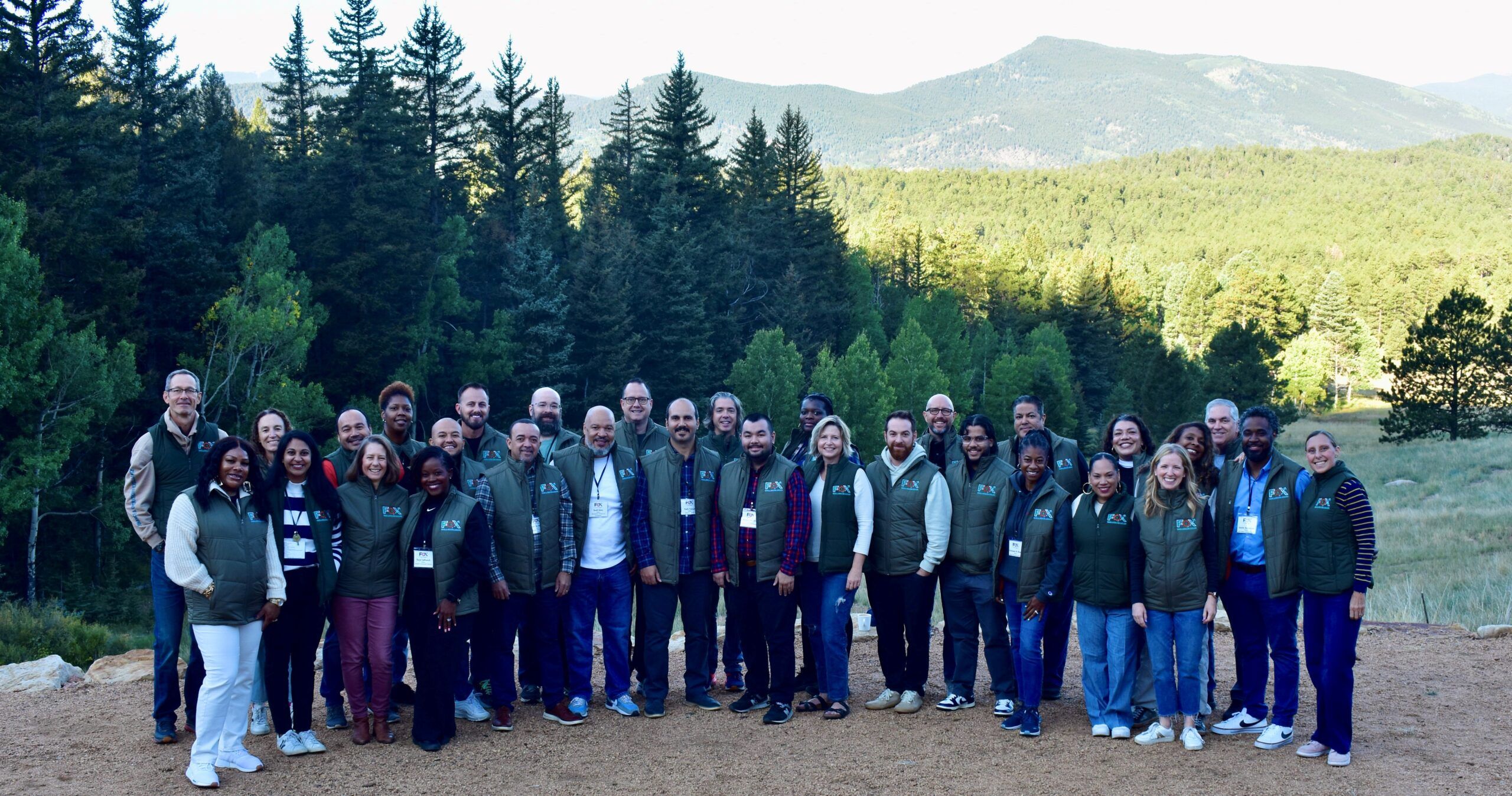Introduction
Afton’s co-founder and Managing Partner, Carrie Stewart, has been a coach for all three cohorts of the FOX Fellowship, a program for Chief Operating and Financial Officers of public charter schools around the country. A few weeks ago, we spoke with the fellowship’s co-founders, Irma Muñoz and DeRonda Williams, to hear about the intent and impact of the program. In our view, the FOX Fellowship represents an important investment in professionals who are great enablers of high-quality public education. Below we share Irma and DeRonda’s powerful perspectives on the work.
Guest Contribution: FOX Fellowship’s Support for Strong Charter School Management
Operations and finance functions are critical to the success of public school systems. While there are significant time and resources dedicated to high-quality instruction (and rightly so!), chronic underfunding in our public education systems leads to charter schools and public school districts alike being unable to fully invest in high-quality finance and operations functions. Therefore, in the charter school sector, we wanted to develop something that supported CEOs and organizations as they scale, not just in recruiting the right talent, but also in onboarding them and providing them an infrastructure of support, particularly in their first year in the roles. There are not many professional development programs for operations and finance leaders and not many networking opportunities other than Charter School Growth Fund’s CFO and COO community of practice. Outside of that, there really aren’t many opportunities for charter school finance and ops leaders to network and share strategies and tools. We also wanted to prioritize building the capacity and improving the retention of COOs and CFOs who are women and leaders of color. Charter schools serve Black and Brown children, so it is important to have the appropriate representation in our schools and in the C-suite.
Fortunately, Charter School Growth Fund recognized the need for a program and wanted to support a program like FOX. They provided funding to support our pilot in June 2022 and for subsequent cohorts. In October 2023, we kicked off our third cohort and plan to launch cohort 4 in September 2024.
Key Components of the Program
At the onset, we set very specific measures of success and committed to responding to data. One of them was around retention of leaders in their role because of the trends that we were seeing in the sector. I’m happy to say we have increased the retention rate within the organizations we’re working with. The early numbers point to retention in a leader’s role in the first year and beyond, which is rewarding and exactly why we developed this fellowship.
To plan for each cohort, we start by collecting a lot of data from the Fellows and their CEOs. We survey three times during the fellowship, beginning with a needs assessment, and tailor our offerings based on the needs of the cohort. We also do ad hoc things like focus groups if we see there is a particular need. We take the data as well as learnings from prior cohorts and embed them in the next cohort programming so that we’re responding to a defined cycle of continuous improvement.
As we were developing the fellowship program, another important thing to us was including coaching as a key component. We were fortunate to pull together a roster of top-notch, diverse coaches, many of whom have sat in the operator seat at high-performing networks. A unique aspect of our coaching is what we call the success triad (fellow, coach and CEO). The fellowship fosters a success triad, which develops a supportive environment that facilitates the work of each fellow. Coaches work with fellows on a dedicated one-on-one basis, while ensuring the deliberate and active involvement of a fellow’s CEO or Executive Director. There are three success triad touchpoints during the fellowship. We see the coaching component of the fellowship to be the linchpin of our offering and it has been very successful at helping Fellows accomplish that shift.
In terms of specific needs for the Fellows, there’s a mix of adaptive and technical needs to address. On the adaptive side, we help them clearly define roles and responsibilities, manage change, and manage up. We dedicate time at our in-person kick-off toward setting SMART goals that measure the success of the work they’re responsible for and ensure that the goals are responsive to the needs of the organization. This work often seems foundational and assumed. It really isn’t. A lot of our fellows throughout the three cohorts are spending a lot of time doing goal definition to drive change and impact throughout the fellowship and beyond. We also did a session ‘Get off the balcony and get on the dance floor.’ The programming provided strategies on how the fellows can get out of the weeds to focus more on strategy and impact. In terms of the technical side, our programming focuses on topics such as student enrollment, budgeting, facilities planning, and long-term financial sustainability. We go deep and cross-functional in each topic. For example, COOs know about enrollment and prioritize the work, but more often than not, they don’t understand the interdependencies between operations and finance or operations and the academic team.
In addition to offering programming, we share best practices, tools, and templates with our Fellows–we don’t want anyone recreating the wheel when high-quality products exist. Fellows also have access to on-demand classes that are virtual and self-paced sessions. They complement the core curriculum.
Challenges and Growth in Fellows’ Roles
COOs and CFOs are uniquely positioned to drive success within a Charter Management Organization, albeit in the format of eliminating distractions so that instructional leaders can focus on what is important, which is student achievement. We often hear that finance and operations teams sometimes don’t understand how their goals impact the overall big picture, due to their lack of direct contact with students. Some CFOs and COOs operate in siloes much moreso than their academic counterparts. That isolation, whether it’s inadvertent or self-imposed, is really harmful to the organization as a whole. The COOs and CFOs certainly see themselves as leaders of their function, but they often don’t assume that they are also stewards of the organization as a whole. Sometimes part of the obstacles around building an infrastructure for success, whether operational, financial, or academic, has to do with how the leadership team works together to ensure that however the problem solving looks and whatever solutions are being executed, it is taking a holistic view that includes a COO and CFO sitting at the table and advocating for the best interest of the kids from their position of accountability.
One component of our fellowship is designed to quickly turn any less-than-ideal dynamics around–it is known as the Capstone Project. We believe a new COO or CFO should have a tangible win within their first six months. This sets the tone for their tenure, it facilitates working relationships among their peers, and engenders trust among their team. Fellows select a project after consulting with their CEO and leadership team. Their Capstone represents a pressing need of the organization. Through the Capstone Projects, our fellows have made an early impact on their organization’s overall financial health and quality of operations services.
We have about 60 fellows who have completed or are currently going through the FOX Fellowship. Over the course of the program, we get to experience the joy of seeing Fellows grow! We’ve had several instances where folks join the fellowship in interim roles, with their CEOs wondering about whether or not a promotion will materialize, and at the end of the fellowship, that promotion happens. Another exciting outcome is the network of connections that are happening with each cohort; these are life-long connections. Being a new leader who does such difficult work is hard and doesn’t leave much time or opportunity to build a network with peers outside the organization. It’s been incredibly rewarding to see folks that came into FOX feeling isolated or alone leaving the fellowship with a built-in family that provides support and a lifetime of lifelines. What’s really great about the fellowship is that you have representation of 20+ charter management organizations. Everybody comes together with a unique perspective about how to approach a problem. We share examples of how a particular problem or focus area should be approached, but the biggest learning comes from fellows sharing and learning from each other.
Lastly, the connections that our Fellows have made with their coaches is also something unique and special. It is not uncommon to have a coach continue their work with a fellow after the fellowship ends, and thus they continue a relationship. This is a testament to how incredible our coaches are and how much value they add to the networks they support.
What’s next for FOX Fellowship
We launched the pilot very quickly and are already on our third cohort. We are building excitement about FOX. We have a wait list for cohort 4, which will launch in September 2024. We have other amazing CFO and COO leaders who are raising their hand to be coaches. We need to pat ourselves on the back because we feel like we’ve done an amazing job so far to make each cohort even more of a success. We simply want to make the fellowship as impactful as possible.
If you’re interested in participating, please fill out the FOX Fellowship Interest Form.

